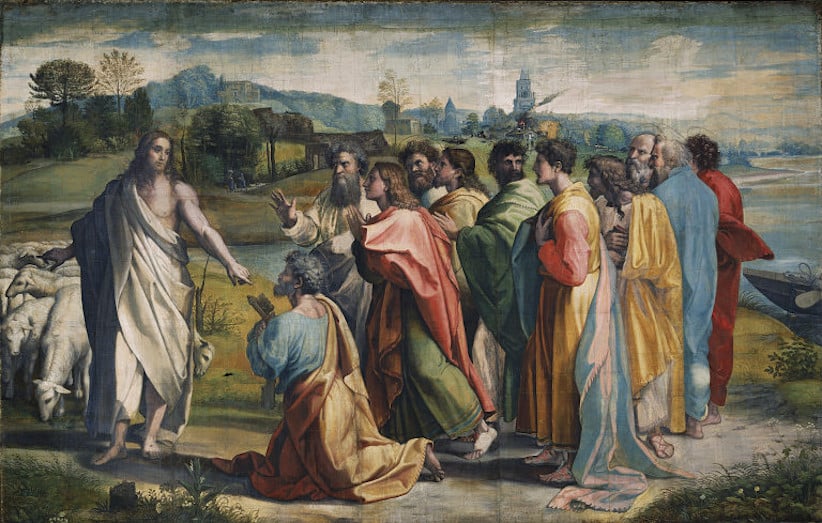Friends, if you have read more than one or two of my columns, you know how much I appreciate the theology of our late Pope Benedict XVI and how often I reference his work. He was always so honest and creative!
As we dwell on the reality of Christ’s resurrection these weeks of Easter, I find myself reflecting on Benedict’s understanding of the Resurrection as love’s victory over death. He tells us, “Love has conquered death,” because our death is wrought, time and again, by our refusal of God’s life-giving love (“Introduction to Christianity,” Ignatius Press, $19.95).
Pope Benedict XVI learned this in part from the disciples’ encounters with the risen Lord as recorded in Scripture. Indeed, these encounters informed their whole understanding of Christ’s life and death. The Resurrection became their lens for truly understanding Christ as the revelation of God’s love as stronger than death (cf. Song of Songs 8:6)
This Sunday’s readings focus on the disciple Peter and his understanding of the Resurrection. Let us turn then, with Pope Benedict XVI, to Peter. But, first, let’s remember Peter’s recent experiences:
| April 30 – Fourth Sunday of Easter |
|---|
|
Acts 2:14, 36-41 |
Christ calling Judas, “Friend,” even as he was betrayed by Judas. Peter’s own betrayal of the Lord in their thrice-denied friendship. The Way of Christ’s Cross, his death and burial, as well as the darkness of Holy Saturday’s silence, a stone sealing Christ’s tomb.
And then, on Sunday, the voice of Mary of Magdala, breaking the silence to report what she has seen: the stone has been moved! Peter runs with Mary and John. To their astonishment, they only see Christ’s linen wrappings lying there, rolled up. That evening, the risen Lord appeared to them and said, “Peace be with you.”
“Peace.” This is the first word of the Risen Lord to his disciples. Peter, he who had thrice denied the Lord’s friendship, heard him: “Peace, Friend! I love you.”
With this greeting, Christ provided Peter with a lens: all that I did before, even my dying, was an act of love. And now you know this, for here I am with my wounds and my words of peace. Your betrayal is forgiven, and our thrice-denied friendship is at peace. Your death is conquered by my love.
Thus, for Peter, and for all of us, Christ’s Resurrection is a proclamation of forgiveness and love, of victory over the death wrought by betrayal of the Lord, from Eve to Peter to us.
And so we see a new Peter in Acts 2. A Peter who calls out to all those cut to the heart by Christ’s death: “Repent and be baptized, every one of you, in the name of Jesus Christ for the forgiveness of your sins.” Turn to Christ, says Peter, and enter into the victory of his Love.
Finally, Peter speaks to us in his letter, perhaps reflecting on his experience of betrayal and forgiveness, and in so doing, handing the lens of love’s victory to his readers — to us:
When [Christ] was insulted, he returned no insult; / when he suffered, he did not threaten; / instead, he handed himself over to the one who judges justly. / He himself bore our sins in his body upon the cross, / so that, free from sin, we might live for righteousness. / By his wounds you have been healed.
With these words, Peter tells us that Christ loves us, even we when we are yet sinners. Peter says this in memory of Christ handing himself over, even as he himself, Peter, was yet a sinner, denying his friendship with Christ and refusing his love. Through the lens of the Resurrection, Peter knew that Christ loved us even from the cross and even as he descended into death wrought by our denial of God’s life-giving love. And so now we can know that Christ descends into all our moments of “death,” conquering them with the presence of his love.
Catherine Cavadini, Ph.D., is the assistant chair of the University of Notre Dame’s Department of Theology and director of its master’s program in theology.





